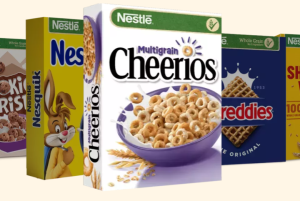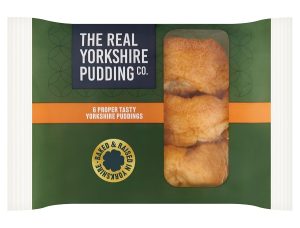Liverpool foods company rapped by ads watchdog over misleading competition

Liverpool-based foods group, Princes, has had one complaint over an advert upheld, but one was dismissed, by advertising watchdog, the Advertising Standards Agency (ASA).
The issues involved an in-store promotional display and a website for a promotion to win Tesco gift vouchers by purchasing Napolina products, seen in January and February 2023.
The first complaint was an in-store promotional display which included large text stating, “Buy any Napolina product and scan the QR code to enter”, above a large QR code. Smaller text underneath stated, “Napolina.com”. At the bottom of the display, smaller text stated, “Visit www.napolina.com & enter details inc. barcode…. Prizes: 250 x £500 Tesco cards available to be won instantly online …”.
A second issue involved the website www.napolina.com, that included text which stated, “WIN WITH NAPOLINA … CHANCE TO WIN £500 in TESCO VOUCHERS … 250 to be Won!”. Smaller text underneath stated, “Prizes: 250 x £500 Tesco gift cards to be won instantly online.”
The ASA received complaints from Compers News magazine and a member of the public.
Specifically, regarding the first issue, it was understood that only selected products from the Napolina range were included in the promotion, and challenged whether the claim “Buy any Napolina product and scan the QR code to enter” seen in the first ad was misleading and breached the Code.
The second complaint believed that both ads did not make clear that all 250 prizes might not be won, and challenged whether the promotion breached the Code.
In response to the first ad, Princes said the promotion had been exclusive to Tesco, and that it had been developed to include all Napolina products stocked by participating Tesco stores.
It believed that communication at the point of sale had been clear that “any Napolina product” referred to any of the product lines stocked by those stores. At the time of the promotion, participating Tesco stores had not stocked any Napolina products other than those included in the promotion.
Princes, therefore, believed that the wording of the promotion had been factually correct and was not misleading, given that all Napolina products stocked by relevant Tesco stores were eligible.
Princes said that two different types of 200g Napolina Oil Sprays, neither of which had meant to have been included in the promotion, had been added to the list of eligible products, meaning that all Napolina products stocked by Tesco, in both participating and non-participating stores had been included in the promotion.
In regards to the second ad, Princes said that the significant terms and conditions of the competition had been clearly listed on the in-store point of sale materials, and had included details on how to participate, the starting and closing dates of the promotion, the requirement for proof purchase, the relevant restrictions, the number and nature of the prizes, and where consumers could find the full terms and conditions.
It said the key terms and conditions had been provided to ensure consumers had a realistic expectation of their likelihood of winning a prize, given that consumers could enter multiple times. They said that detail had followed guidance from the Institute of Promotional Marketing.

And the company, based in the Royal Liver Building, confirmed that the mechanism to award the prizes had been completed by mathematical calculation algorithm, performed by a secure, independently-verified computer programme which allocated prizes randomly.
Princes said 1,605,000 products had been eligible for the promotion, meaning that with 250 prizes to potentially be won, there had been a one-in-6,420 chance of winning. Only 5,404 entries were received, however, a much lower figure than expected. Princes said that as a result, and due to the algorithm governing the promotion, only one of the £500 voucher prizes had been won. So out of an advertised £125,000 prize fund, only £500 had been won. It said while the allocation of prizes had been lower than expected, it had been in line with the algorithm expectations, given that the number of entrants was under 6,420.
The ASA did not uphold the complaint regarding the first ad, saying: “Because any Napolina product a consumer would have been able to purchase in a Tesco store would have been eligible for the promotion, we considered that ad (a) had not presented a misleading impression of which Napolina products had been included in the promotion, and therefore concluded that it had not breached the Code.”
However, the ASA upheld the complaint over the second ad.
It said: “We noted that the prominent claim seen in ad (a) stated that consumers could scan a QR code found on Napolina packs in order to enter, but made no mention of what prizes could be won, or the nature of the promotion.
“Although we acknowledged that smaller text at the bottom of the ad stated ‘Prizes: 250 x £500 Tesco gift cards available to be won instantly online’, the short terms and conditions gave no information on how the promotion worked, or otherwise explained how likely a consumer was to win a prize.
“The prominent claim seen in ad (b) stated that there was a ‘CHANCE TO WIN £500 in TESCO VOUCHERS’, but the short terms and conditions were the same as in ad (a), so contained no further information on the details of the mechanics of the promotion.
“We considered that because of the lack of detail in ad (a), and the emphasis in ad (b) being that there were 250 vouchers on offer, consumers would expect from the headline claims that all of the prizes referred to would be won. We also considered it was unlikely that the wording of the prominent claims in ad (a) and (b) would lead consumers to infer that there was a possibility that not all of the prizes would be won.
“We expected … that the ads should have given a realistic indication of the chances of winning, so that consumers could make an informed decision on whether participation was worthwhile.
“Because the ads for the promotion significantly exaggerated the likelihood of consumers’ chances of winning prizes, and because they did not make clear how prizes were allocated, or otherwise manage prospective participant’s expectations of the likelihood of winning, we considered that the promotion was misleading, and likely to cause unnecessary disappointment for those entering.”
The ASA ruled that the promotion must not be run again in the form complained of. It said: “We told Princes Ltd to ensure that ads for future promotions managed prospective participants’ expectations of the likelihood of winning, or otherwise made significant conditions clear, such as how prizes were allocated or awarded, in order to avoid misleading or causing unnecessary disappointment.”








